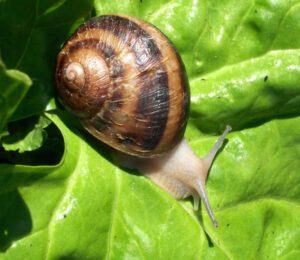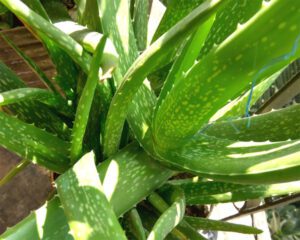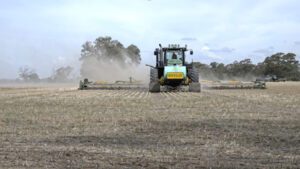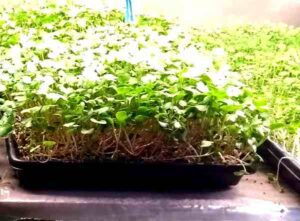Foreigner farming in the Philippines is getting popular day by day. Actually, farming or agriculture in the Philippines is an important part of the economy of this country.
Major producing crops are rice, coconut and sugarcane (dominating the production of crops and exports). According to World Bank as of 2021, agriculture and farming sector in Philippines employs 23% of the Filipino workforce.
As a dominating earning sector, Foreigner farming in the Philippines is getting popular day by day. Many investors are willing to invest in this sector for huge profits.
The Philippines is one the of the most vulnerable agricultural systems to monsoons and other extreme weather events, (just like India) which are expected to create more uncertainty as climate change effects the Philippines.
However, the FAO has described the local policy measures as some of the most proactive in risk reduction. That’s why interest in foreigner farming in the Philippines is increasing.
Foreigner Farming in the Philippines
If you are an investor and interested in foreigner farming in the Philippines, then you can choose some common but highly profitable farming business. Here we are trying to describe the top farming business which will give you good profits from foreigner farming in the Philippines.
Rice, corn, chocolate, coffee, fruits, coconuts, abaca, rubber and sugar are common food crops which you can start producing. If you are interested in animal farming, then crocodile or ostrich farming will be very good for you.

Rice Farming in the Philippines
Commercial rice production in the Philippines has grown significantly since the 1950s. Currently, the Philippines is the 8ty largest rice producer in the world. Currently, the country is accounting for 2.8 percent of global rice production.
IRRI based in the Philippines, has developed many varieties of rice which have improved total crop yields. Commercial rice farming is a very good choice for the foreigner farming in the Philippines.
Maize/Corn Farming in the Philippines
Corn is the 2nd most important crop in the Philippines after rice. About 0.6 million farm households are employed in different business in the corn farming value chain.
Chocolate
Chocolate industry in the Philippines is growing gradually. This industry developed in this country after introducing the cocoa tree into Philippine agriculture.
There are many areas of production of cacao in the Philippines, owing to soil and climate. The chocolate industry is currently on a small to medium scale.
Coffee
Commercial coffee farming in the Philippines is another great choice for foreigner farming in the Philippines. Commercial coffee production in the Philippines began as early as 1740. And coffee production was once a major industry in the Philippines.
The Philippines produces 25,000 metric tons of coffee in the year of 2014 and is ranked 110 in terms of output.
Coconuts
Commercial coconut farming is playing a very important role in the national economy of the Philippines. The Philippines is the world’s largest producer of coconuts, with an annual production of 19.5 million tonnes in the year of 2015.
Fruit Farming
The Philippines is also known for fruit production. This country is the world’s 3rd largest pineapples producer. It was among the top 3 banana producing country in the year of 2010. Another major fruit of the Philippines is mango.
Sugarcane
Commercial sugarcane farming is also very popular in the Philippines. Total land devoted for sugarcane production range from 0.36 million to 0.39 million hectares.
Rubber
Commercial rubber farming business is also very common and popular in the Philippines. An estimated 0.458 million families are dependent upon rubber tree cultivation. As of 2013, total rubber production was 0.111204 million tons.
Abaca
The Philippines provided 87.4% of the world’s abaca in the year of 2014, earning the Philippines US$111.33 million (according to the Philippine Fiber Industry Development Authority).
Crocodile
Along with above crop farming business, commercial crocodile farming is also very popular in the Philippines. Commercial crocodile farming in the Philippines refers to agricultural industries involving the rising and harvesting of crocodiles for the commercial production of crocodile leather and crocodile meat.
Commercial production of crocodile is legal in the Philippines. And the farms in the Philippines that farms and trade crocodile meat and skin are regulated by the CITES (Convention on International Trade in Endangered Species).
Ostrich
Commercial ostrich farming business in the Philippines began in 1996. Commercial production of ostrich was started by Lorenzo U. Limketkai, an engineer, and his son Heintje Limketkai.
Heintje Limketkai took a month-long training course on ostrich farming in Australia. After that training, the Limketkais established their ostrich farming business and named it as the Philippine Ostrich and Crocodile Farms, Inc. It is the first combined ostrich and crocodile farm in the Philippines.
These are the top and profitable farming business ideas you can do in the Philippines. Foreigner farming in the Philippines can be a great way for making high profits for you if you are an investor. Hope this guide has helped you! Good luck and may God bless you!






